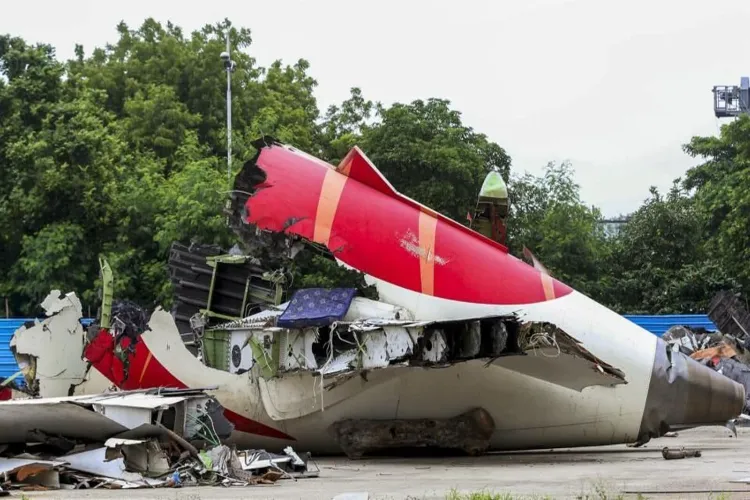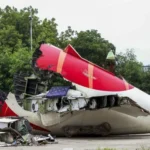
Controversy Surrounds Preliminary Crash Findings
The Pilots’ Association of India (PAI) has strongly contested the recently released preliminary investigation report on the Air India Express Flight 171 crash. The crash, which tragically resulted in multiple fatalities, has been under intense scrutiny as authorities strive to determine its cause. However, the pilots’ union argues that the investigation appears biased, pointing fingers at pilot error without thoroughly considering other critical factors. This disagreement has sparked a heated debate about transparency, accountability, and the integrity of aviation safety probes in India.
Union Alleges Presumption of Pilot Guilt
At the heart of the pilots’ union’s objection is their belief that investigators have prematurely framed the narrative to place blame squarely on the flight crew. According to PAI spokespersons, the preliminary report reflects a tendency to focus disproportionately on pilot actions and decisions, side-lining systemic issues such as airport infrastructure, air traffic control protocols, and mechanical factors. The union insists that this approach undermines a comprehensive investigation and may unfairly tarnish the reputation of skilled professionals who operate under demanding conditions.
Background of the Air India Express 171 Crash
Flight 171, operated by Air India Express, crashed amid challenging weather conditions during its final approach. Initial reports indicated poor visibility and heavy rainfall at the airport, which complicated the landing. The crash led to the loss of lives and raised urgent questions about aviation safety standards, emergency response effectiveness, and regulatory oversight. The preliminary findings outlined probable causes but stopped short of issuing definitive blame, a stance now contested by the pilots’ representatives.
Call for a Holistic Investigation
The pilots’ association is urging the investigation authorities to broaden their scope, taking into account a wide range of factors beyond pilot performance. They emphasize the importance of evaluating airport infrastructure adequacy, runway conditions, navigational aids, air traffic management, and possible mechanical failures. The union also highlights human factors such as crew fatigue, communication protocols, and training adequacy as essential components of a fair and thorough probe.
Industry Experts Weigh In
Several aviation safety experts have voiced concerns that focusing too narrowly on pilot error can obscure underlying systemic weaknesses. Historical precedents show that multifaceted causes often converge in air crashes, including equipment malfunctions, procedural lapses, and environmental challenges. Experts stress that a balanced investigation is crucial not only to assign responsibility accurately but also to implement effective safety measures preventing future tragedies.
Regulatory and Public Response
The Directorate General of Civil Aviation (DGCA) and other regulatory bodies have maintained that the investigation is ongoing and that final reports will be more comprehensive. They assert that initial findings are meant to provide an early understanding of the incident and guide immediate safety precautions. Meanwhile, public opinion remains divided, with some demanding swift accountability and others cautioning against rushed judgments that might undermine pilot morale and confidence.
Pilots’ Demand for Transparency and Fairness
The union has appealed for greater transparency in the investigation process, including sharing detailed evidence and allowing independent experts to review the data. They warn that without an impartial and inclusive inquiry, trust in aviation authorities and the industry’s commitment to safety may erode. The pilots stress that fairness is essential not only for those directly involved in the incident but also for the wider aviation community and passengers relying on secure air travel.
Broader Implications for Aviation Safety Culture
This dispute highlights a larger issue in aviation safety culture, the challenge of balancing accountability with support for frontline operators. The pilots’ union argues that overly punitive approaches can discourage open communication and the reporting of safety concerns. They advocate for a “just culture” framework that encourages learning from mistakes without resorting immediately to blame, fostering an environment where safety improvements are collaborative and systemic.
Next Steps and Ongoing Developments
As the investigation progresses, all stakeholders, including the pilots, regulators, airline management, and victim families, await a conclusive report that addresses the multiple dimensions of the crash. The union’s challenge may prompt a review of investigative procedures and increased scrutiny on how aviation accidents are examined in India. Ensuring a transparent, unbiased process will be vital to restoring confidence and preventing similar tragedies in the future.
Conclusion: Seeking Truth Amid Tragedy
The debate over the Air India Express Flight 171 crash investigation underscores the complexities involved in understanding aviation disasters. While accountability is essential, so too is fairness and a commitment to uncovering all contributing factors. The pilots’ union’s objections serve as a reminder that aviation safety depends on rigorous, impartial inquiries that lead to meaningful reforms, ultimately safeguarding lives and enhancing trust in the skies.




































Leave a Reply